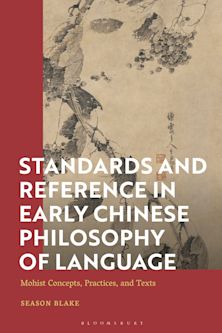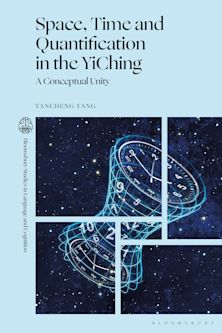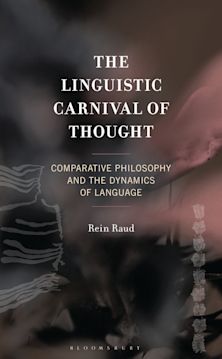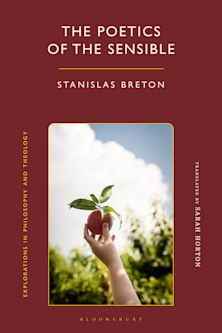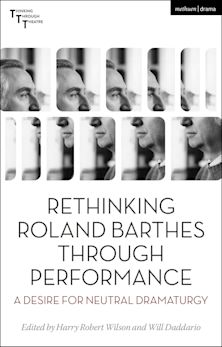Philosophy of Language
The Central Topics
Susana Nuccetelli (Anthology Editor) , Gary Seay (Anthology Editor) , J L. Austin (Contributor) , Anthony Brueckner (Contributor) , Noam Chomsky (Contributor) , Donald Davidson (Contributor) ,
- Textbook
Philosophy of Language
The Central Topics
Susana Nuccetelli (Anthology Editor) , Gary Seay (Anthology Editor) , J L. Austin (Contributor) , Anthony Brueckner (Contributor) , Noam Chomsky (Contributor) , Donald Davidson (Contributor) ,
- Textbook
Description
This collection of classic and contemporary essays in philosophy of language offers a concise introduction to the field for students in graduate and upper-division undergraduate courses. It contains some of the most important basic sources in philosophy of language, including a number of classic essays by philosophers such as Frege, Russell, Wittgenstein, Kripke, Grice, Davidson, Strawson, Austin, and Putnam, as well as more recent contributions by scholars including John McDowell, Stephen Neale, Ruth Millikan, Stephen Schiffer, Paul Horwich, and Anthony Brueckner, among others, who are on the leading edge of innovation in this increasingly influential area of philosophy. The result is a lively mix of readings, together with the editors' discussions of the material, which provides a rigorous introduction to the subject.
Table of Contents
Part 2 Part I: Language, Meaning, and Truth
Chapter 3 Introduction
Chapter 4 Suggestions for Further Reading
Chapter 5 A. The Nature of Language
Chapter 6 Chapter 1. Philosophical Investigations (excerpts)
Chapter 7 Chapter 2. Rules and Representations (excerpt)
Chapter 8 B. Truth, Meaning, and the Indeterminacy of Translation
Chapter 9 Chapter 3. The Semantic Conception of Truth
Chapter 10 Chapter 4. Semantics for Natural Languages
Chapter 11 Chapter 5. Indeterminacy of Translation Again
Chapter 12 C. Meaning as Intention
Chapter 13 Chapter 6. Meaning
Chapter 14 D. Meaning
Chapter 15 Chapter 7. Meaning, Use and Truth
Part 16 Part II:Meaning and Reference
Chapter 17 Introduction
Chapter 18 Suggestions for Further Reading
Chapter 19 A. Proper Names
Chapter 20 Chapter 8. On Sense and Reference
Chapter 21 Chapter 9. Naming and Necessity (Lecture II)
Chapter 22 B. Definite Descriptions
Chapter 23 Chapter 10. Descriptions
Chapter 24 Chapter 11. Reference and Definite Descriptions
Chapter 25 Chapter 12. Descriptions (excerpt)
Chapter 26 C. Demonstratives and Indexicals
Chapter 27 Chapter 13. Demonstratives (excerpt)
Chapter 28 Chapter 14. Understanding Demonstratives
Part 29 Part III: Semantic Content
Chapter 30 Introduction
Chapter 31 Suggestions for Further Reading
Chapter 32 A. Content: Direct-Reference Theory vs. Fregean Semantics
Chapter 33 Chapter 15. Frege's Puzzle (excerpt)
Chapter 34 Chapter 16. De Re Senses
Chapter 35 B. A Puzzle About Belief Ascriptions
Chapter 36 Chapter 17. A Puzzle about Belief (excerpt)
Chapter 37 Chapter 18. What Puzzling Pierre Does Not Believe
Chapter 38 C. The Internalism/Externalism Debate
Chapter 39 Chapter 19. Meaning and Reference
Chapter 40 Chapter 20. Are Meanings in the Head?
Chapter 41 Chapter 21. The Social Character of Meaning
Chapter 42 D. Externalism and Knowledge
Chapter 43 Chapter 22. Anti-individualism and Privileged Access
Chapter 44 Chapter 23. What an Anti-Individualist Knows A Priori
Part 45 Part IV: Convention, Intention, and the Pragmatics of Language
Chapter 46 Introduction
Chapter 47 Suggestions for Further Reading
Chapter 48 A. Speech Acts and Convention
Chapter 49 Chapter 24. Performative - Constative
Chapter 50 B. Speech Acts and Speaker Meaning
Chapter 51 Chapter 25. Intention and Convention in Speech Acts
Chapter 52 Chatper 26. Meaning (excerpt)
Chapter 53 C. Speech Acts and Evolution
Chapter 54 Chapter 27. Pushmi-Pullyu Representations
Chapter 55 D. Conversational Implicature and Metaphor
Chapter 56 Chapter 28. Logic and Conversation
Chapter 57 Chapter 29. What Metaphors Mean
Product details
| Published | 24 Dec 2007 |
|---|---|
| Format | Ebook (PDF) |
| Edition | 1st |
| Extent | 432 |
| ISBN | 9798765176641 |
| Imprint | Rowman & Littlefield |
| Publisher | Bloomsbury Publishing |
Reviews

ONLINE RESOURCES
Bloomsbury Collections
This book is available on Bloomsbury Collections where your library has access.














